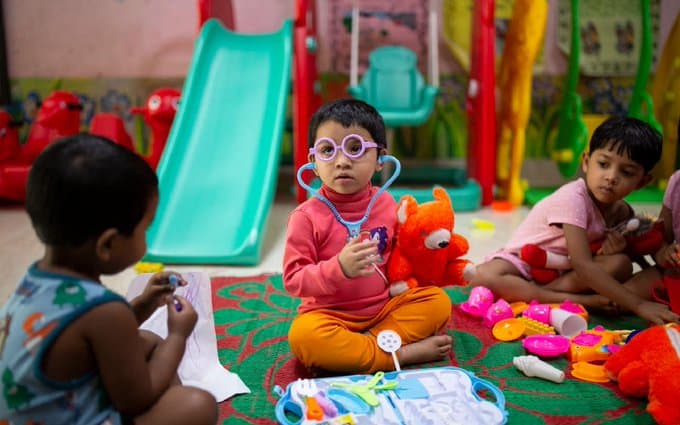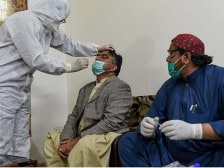UNITED NATIONS – The United Nations Children’s Fund, UNICEF, has said that the closing of educational facilities due to the coronavirus pandemic has resulted in at least 40 million preschool students worldwide missing out on learning and development.
“Education disruptions caused by the COVID-19 pandemic are preventing children from getting their education off to the best possible start,” UNICEF Executive Director Henrietta Fore said in a statement.
“Child care and early childhood education build a foundation upon which every aspect of children’s development relies,” she said.
“The pandemic is putting that foundation under serious threat.”

UNICEF on Wednesday published a research brief that looks at the state of childcare and early childhood education globally, and includes an analysis of the significant disruption that widespread closures of these vital family services, due to the pandemic, are having.
The shutdowns have also left many parents struggling to balance childcare and paid employment, a situation that is placing a larger burden on women who, on average, spend more than three times longer on care and housework than men, according to the research brief.
In poorer countries, it said, the closures have made life even harder for many families with young children, for whom schools are an essential provider of a range of services, including nutrition, stimulation and the development of social, emotional and cognitive skills.
The study shows that, in 54 low- and middle-income countries with recent data, around 40 per cent of children aged between three and five, were not receiving social-emotional and cognitive stimulation from any adult in their household.
The only option for millions of parents, particularly women working in the informal sector, who have no form of social protection available to them, is to bring their young children to work: more than 90 per cent of women in Africa, and almost 70 per cent in Asia and the Pacific, work in this sector.
UNICEF called for all children to have access to affordable and quality childcare, from birth to their entry into the first grade of school. In the report the agency is offering guidance for governments and employers, on improving childcare and early childhood education policies.
Recommendations include the provision of high-quality and affordable, childcare centres; paid parental leave for all parents; flexible work arrangements that address the needs of working parents; and social protection systems, including cash transfers that reach families working in the informal sector.
“Education disruption caused by the COVID-19 pandemic is preventing children from getting their education off to the best possible start”, Ms Fore said. “Childcare and early childhood education build a foundation upon which every aspect of children’s development relies. The pandemic is putting that foundation under serious threat.”














